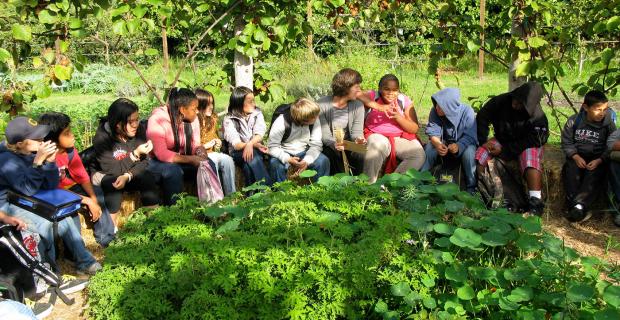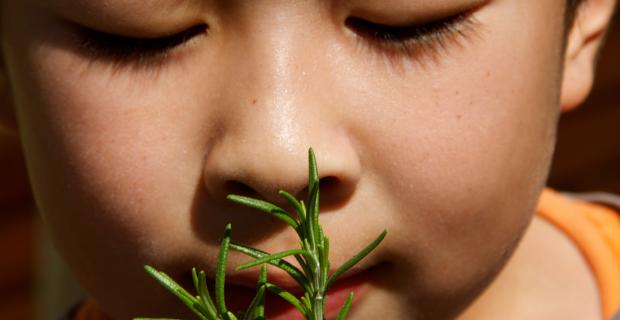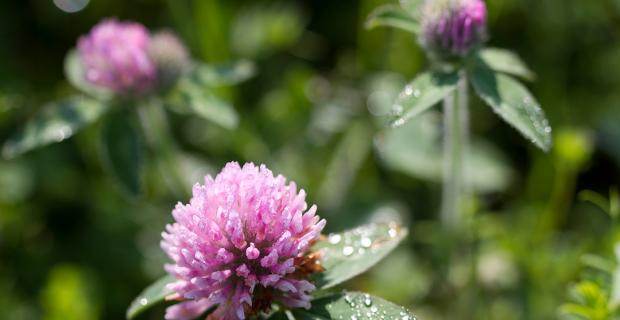An Experiment in "Gardenizing" Schools, Inspired by Wendell Berry

I first read Wendell Berry's essay "Discipline and Hope" in the early 1970s.
Nothing I have ever read has had a more profound impact on how I have lived my life. Over the years, I've returned again and again to my much marked-up text. His observations nurtured my experience until his insights flowered into convictions of my own. I now believe "Discipline and Hope" should be required reading for all educators.
Berry provokes us to review our own lives and to see what we never saw before. When we are children, we take the world as we find it, heedless of the limitations and deprivations that we can only later understand as adults. Our youth is blessed with an ability to see everything around us as wonderful and essential, and so I saw through this essay how I had come to accept an instrumental and mechanical world as the proper order of things. I woke with a shock to a new sense of possibility; and as I entered teaching, I came to wish better for the children whose care and education were entrusted to me.
Berry defined for me the two very different worlds of my early childhood. One world was Brooklyn, New York, where a journey to Prospect Park was a marginal novelty for a subway-savvy kid. The visits to my father's family in Mississippi, the delta cotton farms of his relatives, and the warm ripe figs in my grandfather's garden, and the coolness of his potato cellar in July, might well have been another planet for all their resemblance to the place I lived most of the time.
Berry made clear that cities are about control. They lack harmony, but substitute a compelling order. They are man-made and man-sustained. The poet William Blake characterized life in London as enslavement to "mind-forged manacles." After a time, one can no longer see what is missing; one consents to oppression. Until I read Wendell Berry, I thought Blake was describing some extreme blight. Afterward I came to see that much about my own urban childhood had alienated me from a critical aliveness.
The countryside calls for patience, interest, and presence. Its greatest joy is in community, not entertainment. While the city is about ideas and intention, the countryside is about experience. I came to understand the loss it manifestly is to live life as if the world, its agriculture, and the cycles of its seasons are considered mere footnotes to the comforts of suburbia and the excitements of the city lights.
Berry made it clear that without a local and disciplined regard for the natural world, our understanding, pleasure, and acceptance of life's cycles would be forever damaged and would damage the world, itself. However, such a deep sense of place is not easily found, and the mind has a way of returning, unwittingly, to what it knows or has been trained to see.
In our schools today, we need to ask what we are training our students to see. We expect them to "go to art," "go to science," "go to physical education," and "go to English." We reinforce the notion that these categories can give us a neatly divided life, definitive knowledge, and a predictable and controllable experience. We are tied to schooling methods, in other words, that actively disintegrate the vital connections between things. They become, as Berry suggests, things we consume.
But what if we stopped thinking about going to and from places – above all, gardens – as if they really are separate?
An experiment in "gardenizing."
Our school is in Sonoma County. We have land, experts, farmers, and good weather. And yet, for a time, we would "go to the garden" just like I used to go to Prospect Park. Then, somewhat uncomfortable with the new school garden movement, I wondered what would happen if we declared that the garden was at the center of the school's life – if we "gardenized" the school, so to speak, rather than thinking of it as a new program.
Seeds provide no overnight harvest. We had some growing to do. But once the idea of the garden at the center of things began to influence us, we noticed that nature was not just to be discussed in our outdoor classroom. It showed up in conversations throughout the day, from the lunch tables to the history classes, and most certainly at our weekly meeting of the school community. Now assemblies included references to the weather, the seasons, and the local harvests.
Three years later, I see evidence of the garden far beyond its physical boundaries. For examples, we have had:
- Kindergartners enthusiastically hunting for earthworms in a newly dug bed.
- Fourth-graders coloring yarn with vegetable-based dyes created from garden-grown produce and later using the yarns for weaving projects.
- Seventh-grade students learning about the physics of levers in an outdoor lab using garden tools.
- Seventh- and eight-grade language students using garden settings to mimic ancient Rome in recounting the stories of Romulus and Remus and The Judgment of Paris.
- Art students incorporating gourds into a garden mosaic and wall hanging.
- Students putting uneaten lunch food in a compost bucket instead of the trash.
- Physical education students traveling through the garden on their running route.
- Students at recess considering the garden an extension of the playfield, playing hide and seek amid the corn and resting on hay bales.
The Quakers abide by the tenet that one must respect others, "each to the measure of his own light." Similarly, I believe we need to cultivate a "Garden Mind."
We have to see how we connect and reconnect to those around us, the new voices we hear, the new ways we begin to speak, what we choose to share, and perhaps revel in some joys we have long neglected or have only just discovered.
Schools are no better than the communities they serve. Our desire to make them agents of change for a society asks too much of them and it always has. They have been called upon to assimilate immigrants, produce space scientists, and initiate vast social change. What schools can do is to express the simplest aspects of the value of experience: love of knowledge and community. They can perform and inhabit the pleasures of being alive and connected.
If we allow that there might be such a thing as a "Garden Mind," a simple sense of being that incorporates the disciplines that Wendell Berry wrote about so eloquently, we will move beyond the transient thrills of consumption. The complex garden, as Tina Poles puts it, is not about perfection; it may appear decidedly shaggy at first sight. But complexity invites our participation. So, in the end, we neither go to or from the garden. We abide in it.




